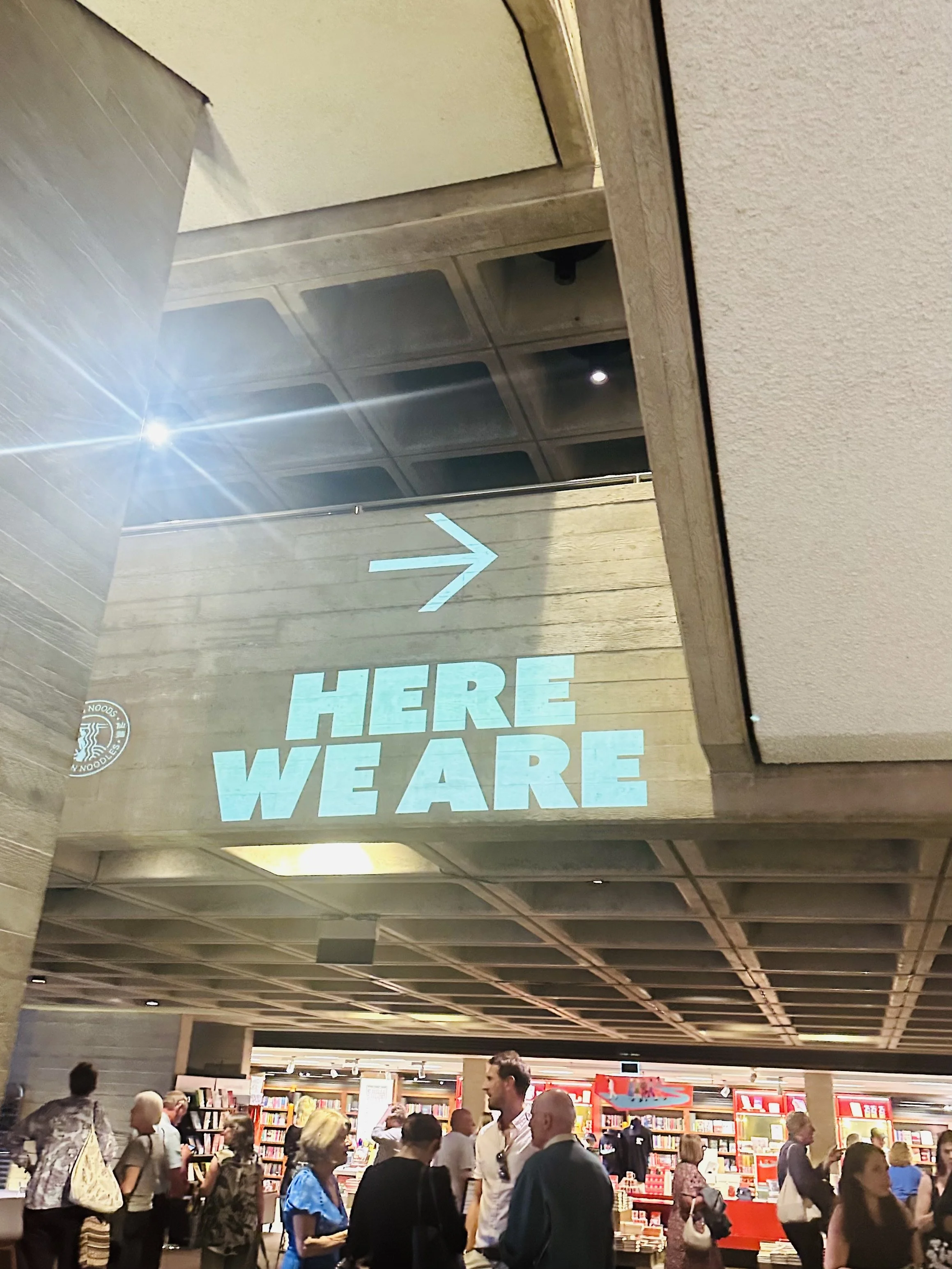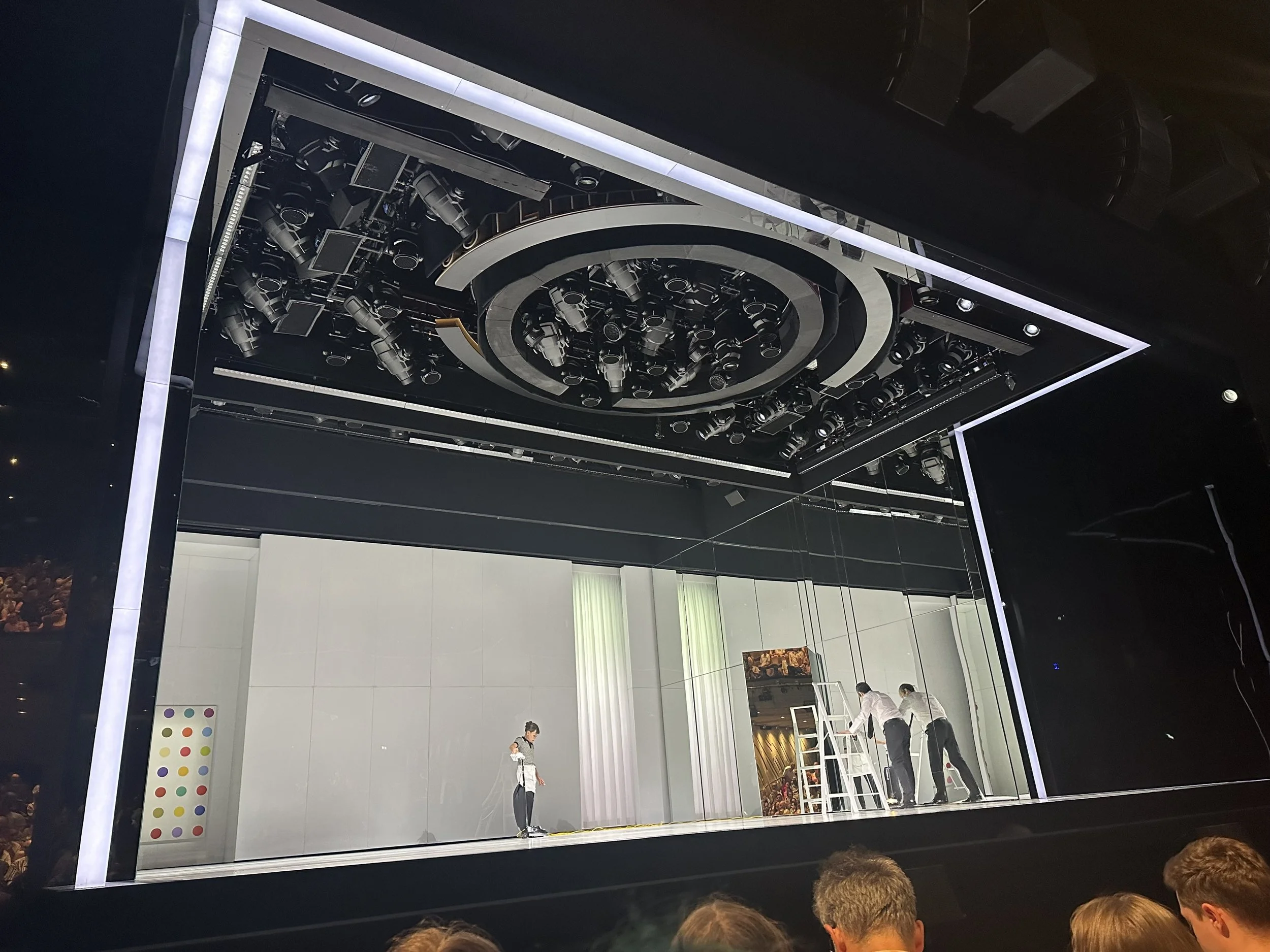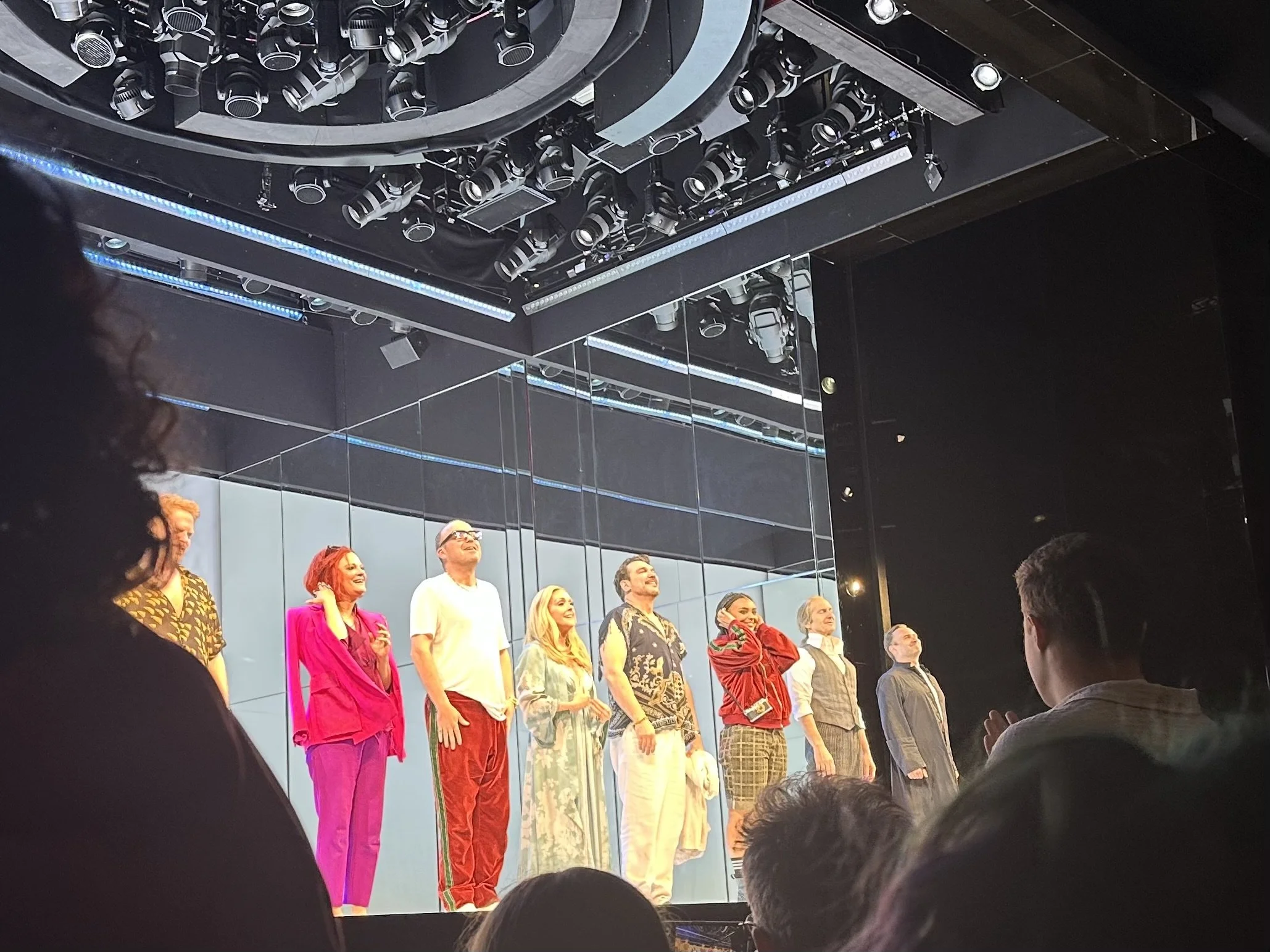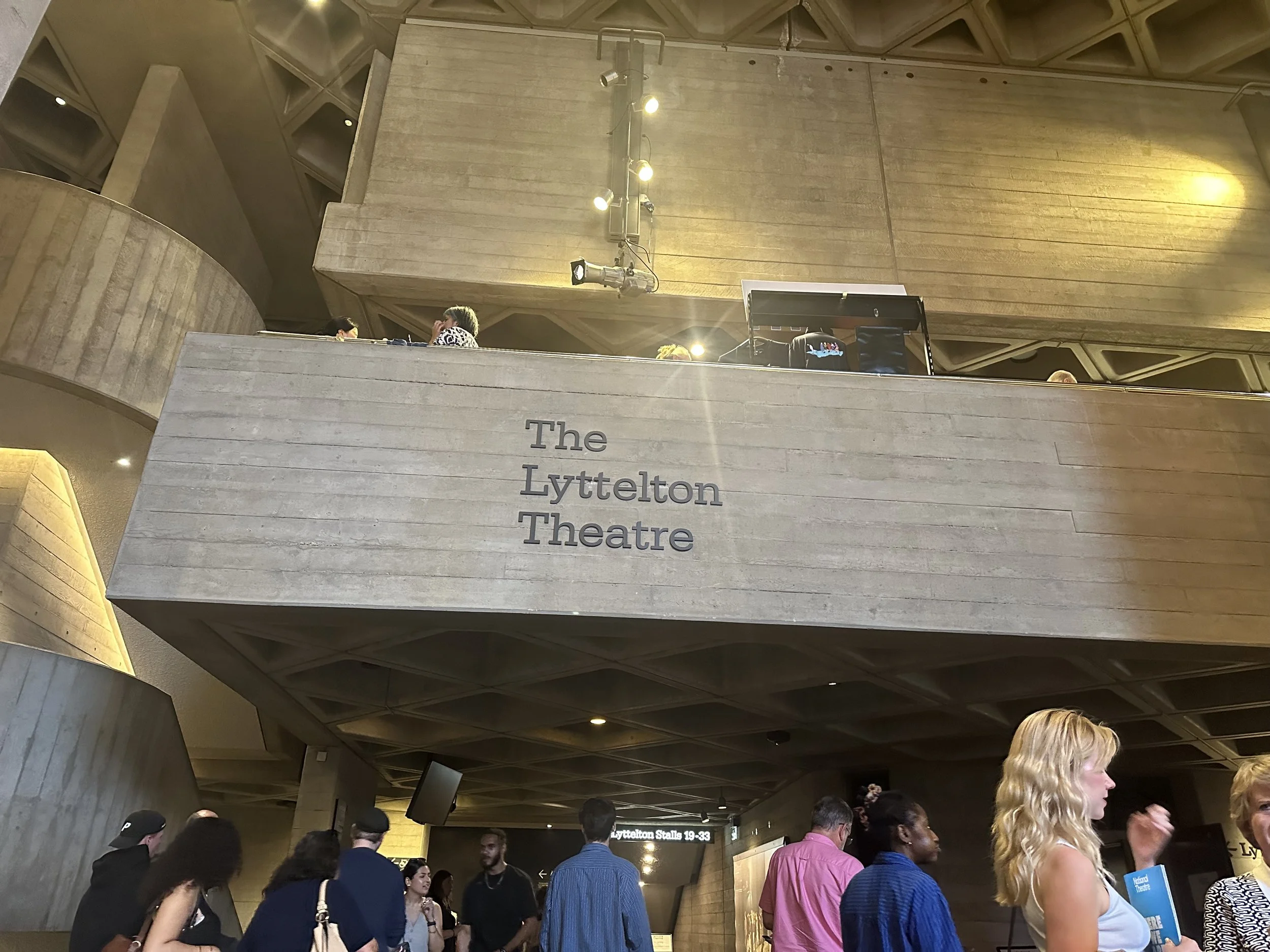Here We Are
Here We Are is the last musical Stephen Sondheim was working on before he passed away in 2021, an adaptation of 2 Luis Buñuel films, The Exterminating Angel and The Discreet Charm of the Bourgeoisie, exploring the absurdity of how the ultra-wealthy live. With David Ives writing the book and bringing the piece to a state of completion for performance after Sondheim’s passing, this production at The National Theatre follows the design of the Off-Broadway premiere last year but with a new star-studded cast. Ultimately it does feel somewhat unfinished as the tail end is lacking in singing and there is a lack of clarity in the piece’s purpose, but the cast were stellar, and it was undeniably an enjoyable show.
The story follows a group of upper-class friends searching for a place to brunch, but every spot they arrive at has some absurd issue that makes it unfit, until they eventually arrive at the “Mirandan” Embassy where they finally eat but unfortunately become unable to leave, providing a purgatory-esque setting for Act 2. The friends are all caricatures in their own right, with sub-plots of affairs and drug cartels, and seemingly accidentally bringing about the literal end of the world.
What I liked
It was an absolute joy to hear new Sondheim melodies; they truly have their own iconic sound. My favourite songs were The Road 1 - Part 3 and the Waiter’s Song, two that came quite early in the show. The Waiter’s song was exactly what I wanted from some new Sondheim piece, and Denis O’Hare who performed it, along with a variety of other characters in the piece, was exceptional. The Road 1 - Part 3 was the main introduction of Fritz, played by Chumisa Dornford-May who had an amazing voice and also the catchiest tune in the show.
The design of the show was beautiful. Joe Mantello’s direction of the piece is one of the reasons I think the show works despite some story issues. Set and Costumer Designer David Zinn’s initial stage set bare with just a stark white floor with mirrored walls made any introduction of colour gorgeous, and I feel it really enhanced the absurd nature of the piece. The use of lighting, from lighting designer Natasha Katz, was pivotal for this effect as well.
One of my favourite moments of the show is actually a personal contradiction: I loved it but also found it completely pointless within the piece. This was, if anyone hasn’t already guessed it, the moment where Marianne, played by Jane Krakowski, danced with a bear. It was absolutely hilarious and the bear’s slow emerging from the shadows felt like a trick on the eyes with the best payoff.
What wasn’t my favourite
Unfortunately, I do feel that it is obvious the show was unfinished. Sondheim shows are extremely rich with intention whereas this show lacks clarity, even for an absurdist piece. I really like absurdist theatre, but it’s worth noting a difference between meaningless and pointlessness; absurdist theatre utilises things like alienation, disorientation, existentialism and more to challenge an audience on their own views by putting them in an unexpected new light. Here We Are initially sets up a critique of capitalism with these kind of elements but lacks clarity and follow-through which renders much of the set up pointless. There ultimately isn’t a critique of capitalism and the rich because of this lack of clarity, which feels very unusual for a Sondheim show given the depth and intension his writing typically entails.
It also feels like an unusual piece for Sondheim because the characters lack depth. I felt that the first act was working to establish the core characters as caricatures of the extreme wealthy, and the second act worked to show their true humanity, but I don’t feel any substantive development was shown by the end of the show, and instead their final moments felt contradictory.
For example, and warning for spoilers, Fritz is an anti-capitalist activist who socialises with the wealthy anyway, painting a caricature of hypocrisy and performative activism. I would have expected the development of a hypocrite to recognise her contradictions, but instead she steps away from her critiques of capitalism in favour of humanising her wealthy friends (which is not what made her a hypocrite, and now she is just another rich person who doesn’t care about the world).
I was also not a fan of the Fritz identifying as gay only to almost immediately fall in love with a man. It felt like an unneeded dig at the queer community, and even if we wanted to include commentary of performative activism including queerbaiting or something alike, it would need more substance than 2 one-liner jokes (they were something along the lines of “I’ve been gay since I was 3” and then “I’m experimenting”).
I had a lot of frustrations with Fritz, which admittedly is likely because she is the character I most relate to, but also because she is the only caricature that directly partakes in the piece’s larger commentary. All the other characters are products and reflections of those benefitting from capitalism, but Fritz is implied to be actively conscious of the damage of capitalism and yet as a character she works backwards against it. The piece also seems to equate “the end of capitalism” with “a violent end of the world” which I feel is a damaging narrative and feeds into the idea that capitalism is the only system that could work, and that anti-capitalists are ultimately violent.
Overall
I did enjoy the show, but it’s not as good as other Sondheim shows by a long shot. Admittedly I’ve thought of theories of what the musical, as it stands, says, but me filling in gaps does not make it a complete show. I don’t plan on seeing it again, but I will be listening to the album.



